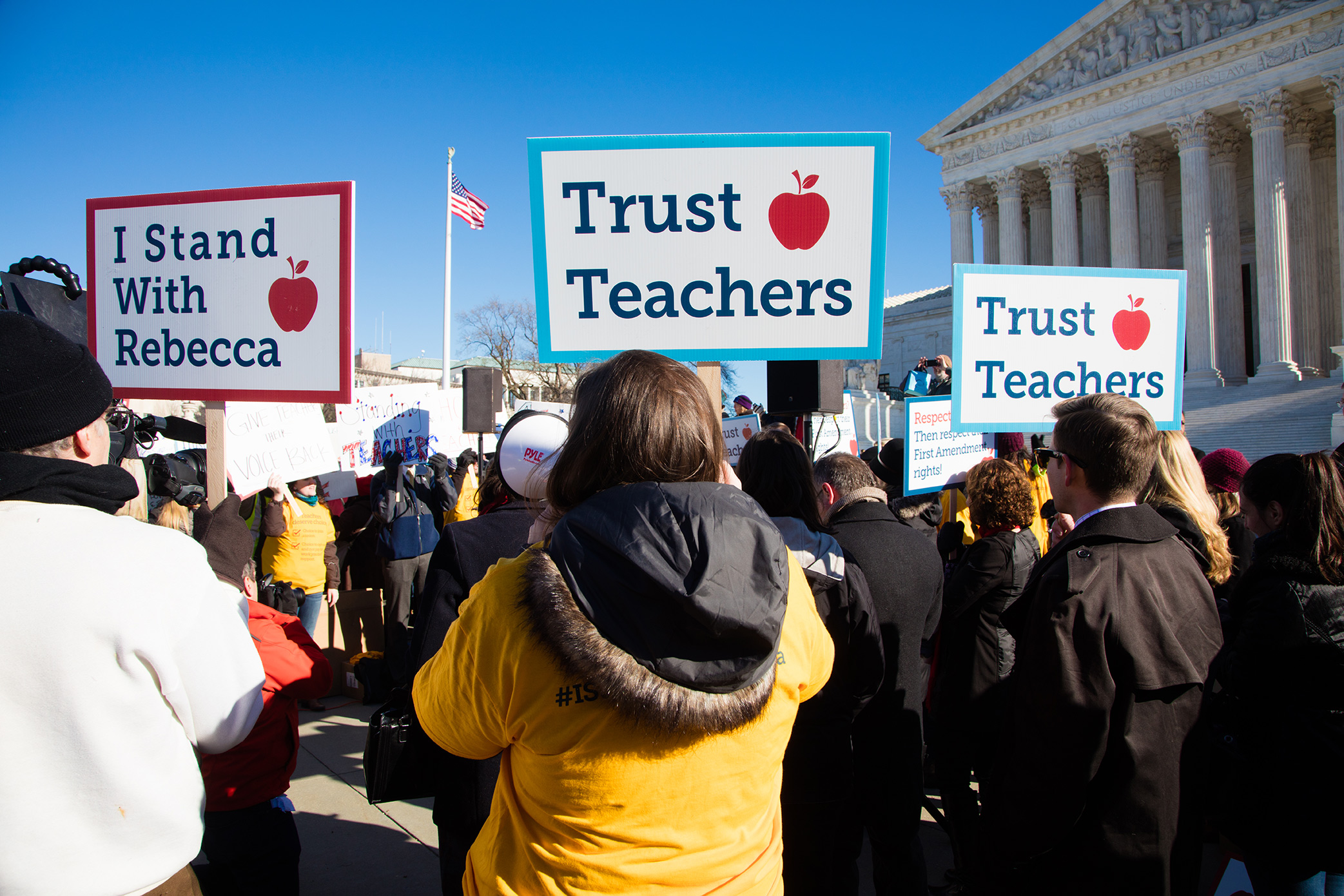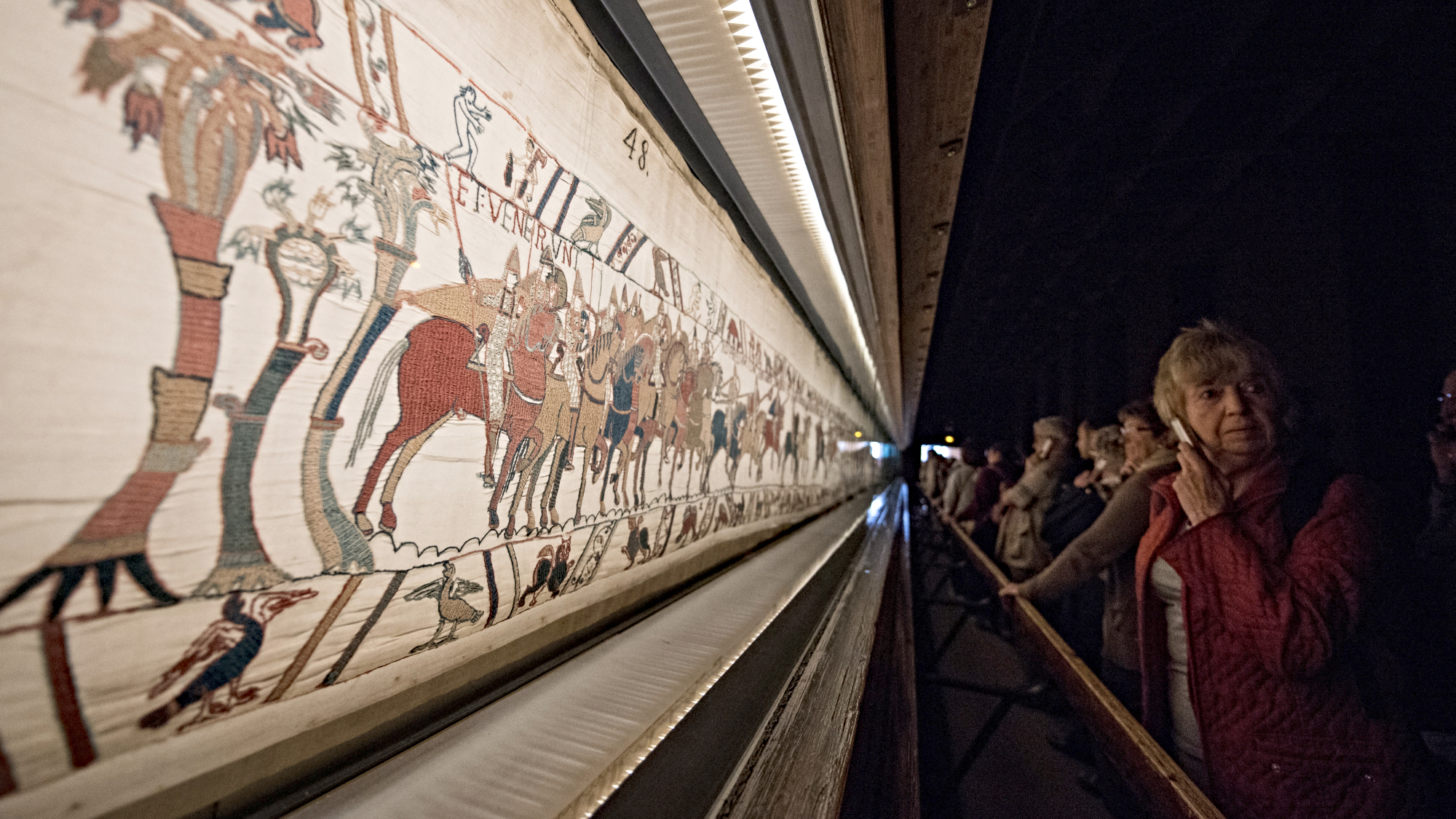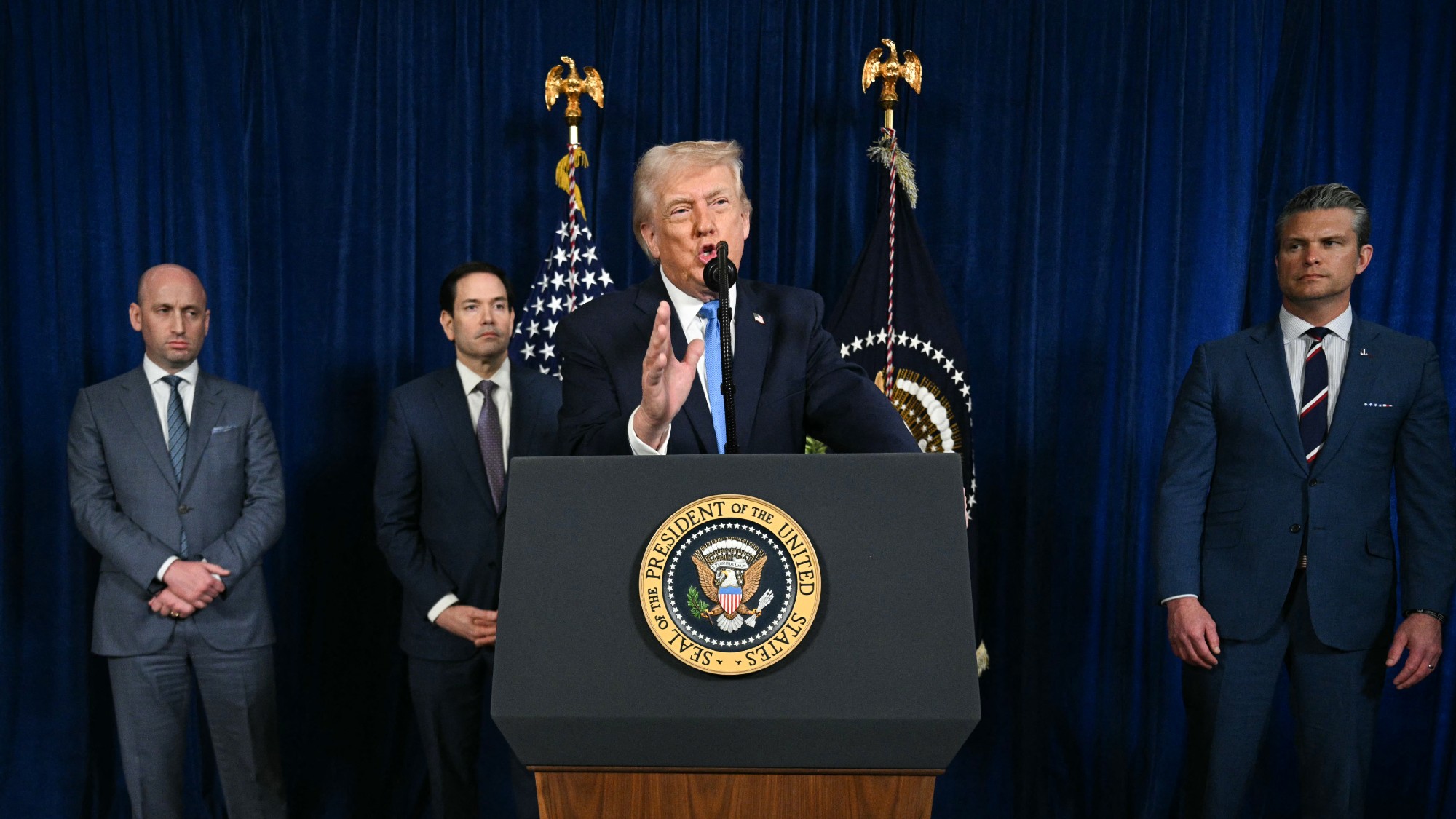There's a weird hypocrisy at the heart of the case against unions
Why unions should breathe an enormous sigh of relief over their unexpected Supreme Court victory


Public employee unions dodged a bullet at the United States Supreme Court on Tuesday.
The case was all about "fair share" fees. Essentially, if a majority of government employees at a particular site (like a school district or fire department) vote to unionize, then the union becomes the representative for all those workers, and bargains on their behalf. Even workers who aren't union members reap the benefits of the union's efforts. This creates the potential for a "free rider" problem, in which a union collapses because a critical mass of workers realizes they can reap the benefits of the union without paying any union dues.
To prevent this, more than 20 state governments have laws requiring government employees who aren't members of a union to nonetheless pay a "fair share" fee to the unions who represent their bargaining unit. California is one such state, and the case before the Supreme Court — Friedrichs v. California Teachers Association — was brought by a teacher who isn't a union member. She argued that the state's fair share fee law is unconstitutional.
The Week
Escape your echo chamber. Get the facts behind the news, plus analysis from multiple perspectives.

Sign up for The Week's Free Newsletters
From our morning news briefing to a weekly Good News Newsletter, get the best of The Week delivered directly to your inbox.
From our morning news briefing to a weekly Good News Newsletter, get the best of The Week delivered directly to your inbox.
On Tuesday, the Scalia-less court deadlocked in a 4-4 split. That effectively means a lower court's ruling in the unions' favor was upheld. This is a big deal. Court watchers had expected that with a conservative majority on the Supreme Court, government unions' ability to levy fair share fees would have been bulldozed. Only because the Supreme Court is down a justice did the unions prevail.
So let's take a moment and think about what would have happened had the ruling gone the other way. Because not only would it have been a major blow to the power of unions and the bargaining rights of workers — it would have been massively hypocritical and unfair.
Now, unions obviously don't just bargain for their workers; they're also political entities that lobby for particular policies and endorse political candidates. Conceptually, there's supposed to be a firewall between the "private" sphere of unions bargaining on behalf of workers, and the "political" sphere of union activity that stumps for particular causes. Workers who aren't union members can only be required to pay dues that fund activity in the private bargaining sphere, in order to protect their First Amendment rights.
The argument made in Friedrichs, however, was that because the contracts for public employee unions involve government budgets, everything unions do is political. None of their activity falls in the private sphere, and thus none of it can be financed by non-voluntary dues.
A free daily email with the biggest news stories of the day – and the best features from TheWeek.com
Well, okay, fair enough. But if you take that view, then slicing the distinction between unions' "private" bargaining and "political" lobbying ought to cut both ways. After all, all compensation and bargaining in the economy is inescapably political, in the sense that it's set by market forces that are in turn set up by political choices over how to conduct fiscal policy, monetary policy, and a host of other political policy questions. The laws for how unions and their public and private employers should interact are just one more item on that very large menu.
If all efforts to affect public employee pay and working conditions are inescapably "political," because they make demands on government policy, then all political decisions about government policy are also inescapably part of private contract negotiations, since they set the framework of forces that determines who comes to the "private" bargaining table with what leverage.
This is really the bedrock problem: Negotiations over pay at a particular factory or business or government agency are all actually just small battles in an ongoing, much larger fight over pay that takes place at the collective social level of the entire economy. That means that attempts to define "the rules" for negotiations at those particular places, or between a particular union and employer, will almost always involve subjective and arbitrary definitions. And, human nature being what it is, how those subjective judgment calls are made will almost always break in favor of the people with the most power; i.e. the people paying the wages, not the people getting them.
When we fail to realize that, we tend to lock ourselves into situations where the "fair" answer for how to design the rules always winds up requiring the workers to make the sacrifices.
Jeff Spross was the economics and business correspondent at TheWeek.com. He was previously a reporter at ThinkProgress.
-
 The best art exhibitions to book in 2026
The best art exhibitions to book in 2026The Week Recommends Our pick of the shows to see across the UK, from epoch-defining embroidery to fresh looks at under-appreciated artists
-
 What is the Donroe Doctrine?
What is the Donroe Doctrine?The Explainer Donald Trump has taken a 19th century US foreign policy and turbocharged it
-
 Could a part-and-part mortgage help you on to the property ladder?
Could a part-and-part mortgage help you on to the property ladder?Combining repayment and interest-only mortgages could become more popular as part of a push towards more flexible lending
-
 Bari Weiss’ ‘60 Minutes’ scandal is about more than one report
Bari Weiss’ ‘60 Minutes’ scandal is about more than one reportIN THE SPOTLIGHT By blocking an approved segment on a controversial prison holding US deportees in El Salvador, the editor-in-chief of CBS News has become the main story
-
 Has Zohran Mamdani shown the Democrats how to win again?
Has Zohran Mamdani shown the Democrats how to win again?Today’s Big Question New York City mayoral election touted as victory for left-wing populists but moderate centrist wins elsewhere present more complex path for Democratic Party
-
 Millions turn out for anti-Trump ‘No Kings’ rallies
Millions turn out for anti-Trump ‘No Kings’ ralliesSpeed Read An estimated 7 million people participated, 2 million more than at the first ‘No Kings’ protest in June
-
 Ghislaine Maxwell: angling for a Trump pardon
Ghislaine Maxwell: angling for a Trump pardonTalking Point Convicted sex trafficker's testimony could shed new light on president's links to Jeffrey Epstein
-
 The last words and final moments of 40 presidents
The last words and final moments of 40 presidentsThe Explainer Some are eloquent quotes worthy of the holders of the highest office in the nation, and others... aren't
-
 The JFK files: the truth at last?
The JFK files: the truth at last?In The Spotlight More than 64,000 previously classified documents relating the 1963 assassination of John F. Kennedy have been released by the Trump administration
-
 'Seriously, not literally': how should the world take Donald Trump?
'Seriously, not literally': how should the world take Donald Trump?Today's big question White House rhetoric and reality look likely to become increasingly blurred
-
 Will Trump's 'madman' strategy pay off?
Will Trump's 'madman' strategy pay off?Today's Big Question Incoming US president likes to seem unpredictable but, this time round, world leaders could be wise to his playbook
